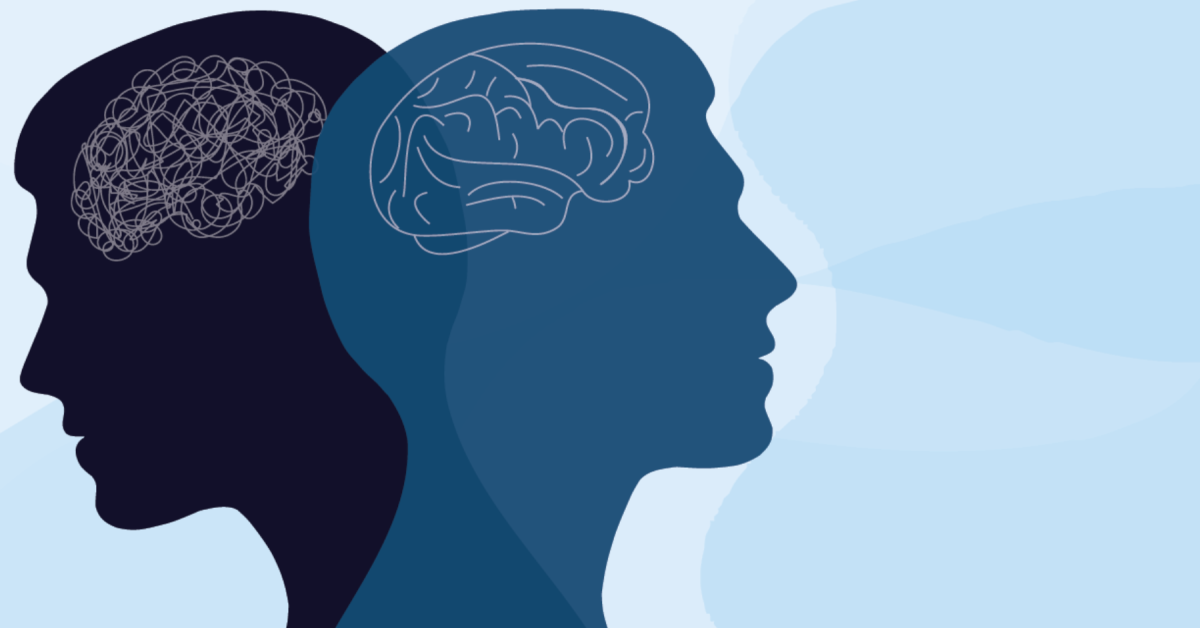Effective Mental Health Services: Solutions for every single Scenario
Checking Out the Connection In Between Nutrition and Mental Wellness Improvement
The effects of our nutritional options on mental health have been increasingly identified by health and wellness specialists and researchers alike. As we navigate the complex landscape of contemporary way of livings, uncovering the nuanced partnership in between nourishment and mental health and wellness renovation might hold the trick to opening a much deeper understanding of our psychological and cognitive resilience.
Impact of Food on Mood
The relationship between dietary selections and state of mind regulation is a critical facet of understanding the impact of food on psychological health. Research study has shown that certain foods can affect neurotransmitter activity, affecting mood and emotions. Foods abundant in omega-3 fatty acids, such as fatty fish, walnuts, and flaxseeds, have actually been linked to lower rates of depression and boosted state of mind guideline.
In addition, complicated carbs located in entire grains, fruits, and vegetables can help manage blood sugar level degrees, which subsequently can have a positive influence on state of mind security. On the other hand, diets high in processed foods, sugar, and hydrogenated fats have actually been connected with an enhanced risk of clinical depression and state of mind disorders.
Moreover, the gut-brain link plays a considerable role in state of mind policy. The intestine microbiome, influenced by the foods we consume, can interact with the brain via the gut-brain axis, impacting state of mind, stress and anxiety levels, and total mental well-being. Consequently, making nourishing and mindful nutritional choices is crucial for maintaining a healthy and balanced and balanced state of mind.

Vital Nutrients for Anxiousness

In addition, the amino acid tryptophan, discovered in foods like turkey, eggs, and nuts, is a forerunner to serotonin production, a natural chemical understood for its role in advertising sensations of calmness and wellness. Vitamin B facility, particularly B6 and B12, are likewise vital for maintaining a healthy and balanced nerve system and may assist reduce stress and anxiety signs and symptoms.
Including these necessary nutrients into a healthy diet can have a positive influence on managing stress and anxiety and enhancing total mental health and wellness.
Dietary Approaches for Clinical Depression

One nutritional approach for taking care of anxiety is concentrating on foods abundant in omega-3 fatty acids, such as fatty fish, flaxseeds, and walnuts. Omega-3 fatty acids have actually been connected to decreasing inflammation in the brain and boosting neurotransmitter function, which can positively affect state of mind. Furthermore, increasing the usage of fruits, vegetables, entire grains, and lean healthy proteins while decreasing the intake of refined foods and sugars might help in relieving depressive signs.
Additionally, maintaining ample levels of vitamin D, either via sunlight direct exposure or supplementation, is vital for supporting psychological health and wellness. Vitamin D deficiency has been connected with an increased danger of depression, making it critical to guarantee enough intake of this nutrient. By including these dietary methods, people may successfully complement conventional therapies for clinical depression and boost their general health.
Gut-Brain Axis and Mental Health
Concentrating on the elaborate connection in between the stomach system and psychological health, the Gut-Brain Axis plays a crucial role in influencing cognitive features and psychological well-being. The Gut-Brain Axis is a bidirectional interaction network in between the central nerves and the enteric anxious system, connecting the cognitive and psychological centers of the brain with outer intestinal tract functions. This axis is controlled by a detailed interplay of neural, immune, endocrine, and metabolic pathways.
Research suggests that the structure of intestine microbiota, the varied area of microorganisms living in the stomach system, can have an extensive effect on mental health. Imbalances in digestive tract microbiota, called dysbiosis, have been connected with problems such as anxiety, stress and anxiety, and even neurodegenerative illness. Moreover, the intestine microbiota plays a crucial role in the manufacturing of neurotransmitters like serotonin, which is essential for regulating mood and psychological feedbacks.
Maintaining a healthy digestive tract microbiota with a well balanced diet rich in fiber, fermented foods, and probiotics is critical for sustaining mental wellness (Mental Health Services). Methods focused on maximizing the Gut-Brain Axis supply appealing avenues for boosting emotional health and cognitive function
Nutrition's Function in Cognitive Feature
Provided the significant impact of the Web Site Gut-Brain Axis on mental health and wellness, understanding exactly how nutrition influences cognitive function ends up being paramount in advertising overall well-being. Nourishment plays an important duty in cognitive function by giving important nutrients that sustain mind health and wellness and optimum performance.
Secret nutrients such as omega-3 fats, anti-oxidants, minerals, and vitamins are known to improve cognitive capacities, including memory, focus, and analytical abilities. Omega-3 fatty acids, discovered in fatty fish like salmon and nuts, have actually been connected to improved memory and cognitive feature. Anti-oxidants, bountiful in vegetables and fruits, aid protect brain cells from damage created by cost-free radicals, thus preserving cognitive function.
In addition, a well balanced diet abundant in entire grains, lean healthy proteins, see fruits, and vegetables can positively impact cognitive function by supporting blood sugar level levels and offering sustained energy to the mind. On the other hand, diets high in refined foods, hydrogenated fats, and sugars have been connected with cognitive decline and impaired brain function. For that reason, making notified dietary options is necessary for keeping optimum cognitive feature and general psychological wellness.
Conclusion
To conclude, the connection in between nourishment and mental health is complex and complicated. The effect of food on mood, vital nutrients for stress and anxiety, dietary strategies for depression, the gut-brain axis, and nourishment's function in cognitive function all play crucial roles in psychological wellness. Understanding the connection in between nutrition and mental wellness enhancement is vital for promoting total wellness and dealing with mental wellness problems. Further study and understanding around are essential for progressing interventions and therapies.
The effects of our dietary selections on mental wellness have been increasingly recognized by wellness professionals and researchers alike. As we browse the complex landscape of contemporary lifestyles, discovering the nuanced relationship between nourishment and psychological health enhancement might hold the key to unlocking a much deeper understanding of our cognitive and emotional durability.
Structure upon the important nutrients that sustain psychological health, particularly in her response taking care of anxiousness disorders, the focus now shifts towards analyzing nutritional strategies for attending to clinical depression.Concentrating on the elaborate connection between the stomach system and psychological wellness, the Gut-Brain Axis plays a pivotal role in affecting cognitive functions and psychological health (Mental Health Services). Recognizing the connection between nutrition and psychological wellness renovation is essential for promoting overall wellness and addressing mental wellness concerns